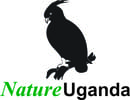Vulture Monitoring

While vultures are not cute and cuddly, they are one of nature’s most important scavengers. These birds that once feasted on that misfortune – the janitors that feed on the corpses of decomposing bodies, are collapsing as noted from the Kampala vulture counts that are conducted annually. This is part of a broader decline in vulture populations and illustrates how far-reaching human interventions/development can be. It is for this reason that the first Saturday of September has been set as World Vulture Awareness Day. Urgent action is needed to save the world vulture population.
Uganda’s vultures are facing a range of specific threats, these include; poisoning and change in their natural habitat because of development. Despite their gloomy reputation, vultures provide valuable services.
They have been found to remove a good percentage of the waste produced in cities and towns. By picking clean the carcasses of dead animals, vultures indirectly keep the numbers of feral dogs in check; that, in turn, reduces transmission rates for diseases like rabies.
Worried by reports of vulture declines across the country, NatureUganda annually embarks on vulture counts in Kampala to keep check on the endangered species and to join the rest of the world to celebrate World Vulture Day. The first Saturday in September each year is International Vulture Awareness Day.
Related Posts
Recent Posts
Safeguarding Uganda’s Only Breeding Population of Rüppell’s Vultures
Culture, Traditional Knowledge and Uganda’s Wetlands: Insights from the World Wetlands Day 2026 Public Dialogue
Annual Planning Meeting Sets the Course for Conservation Action in 2026
All Categories
- capacity building (1)
- Conservation and Development (36)
- Eco-tourism (6)
- Education and Awareness (15)
- Forests (13)
- Gorvenance (2)
- Habitats (14)
- membership (2)
- Nature walk (3)
- People (10)
- Projects (13)
- Public dialogue (10)
- Research and Monitoring (23)
- Sites (6)
- Species (14)
- Wetlands (17)
- Wildlife (10)




